In today's fast-paced business environment, ensuring the safety and well-being of everyone on your premises is of utmost importance. That's why establishing a clear vendor visitor policy can help maintain a secure and organized atmosphere for both employees and visitors alike. With the right guidelines in place, you can easily manage vendor interactions while fostering positive relationships. Curious to learn more about creating an effective vendor visitor policy? Let's dive in!
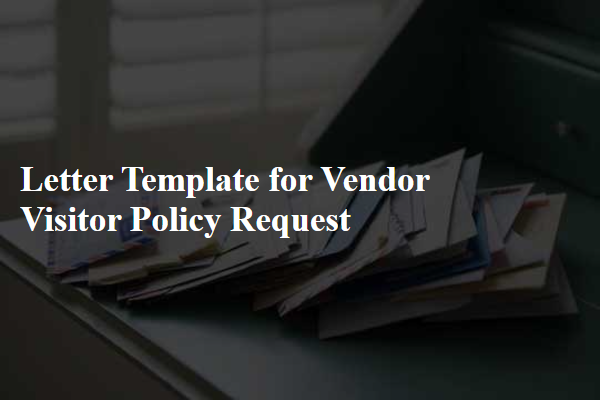
Purpose of the visit
Vendor visitor policies are essential for maintaining security and ensuring smooth operations within facilities. The primary purpose of a vendor visit may include conducting site assessments (evaluating workspace and equipment conditions), delivering supplies (ensuring timely arrival of inventory), performing maintenance (addressing equipment malfunctions, typically scheduled on quarterly intervals), or providing training (educating staff about new software or systems). Furthermore, compliance with visitor protocols, such as registering at the front desk, wearing identification badges, and adhering to safety regulations, is critical for controlled access to sensitive areas. Establishing a clear purpose enhances the overall efficiency of the visit and reinforces collaborative relationships between businesses and their vendors.
Visitor identification requirements
Visitor identification requirements play a crucial role in maintaining security and safety protocols within a facility. Various organizations, such as corporate offices or manufacturing plants, often necessitate government-issued identification, such as a driver's license or passport, to verify visitor identities. The identification process may also include digital registration systems to streamline check-ins, ensuring compliance with visitor management policies. Furthermore, facilities may impose additional measures, including background checks or pre-registration forms, especially in sensitive areas like laboratories or financial institutions. Effective visitor identification not only safeguards assets but also enhances overall workplace security by ensuring that only authorized personnel access critical areas.
Security and confidentiality parameters
A vendor visitor policy establishes essential security and confidentiality parameters for managing access to sensitive areas within a corporate environment, such as financial institutions or healthcare facilities. This policy typically includes a structured registration process, requiring vendor personnel to provide identification (e.g., government-issued IDs) before entering secure premises, ensuring compliance with local regulations. Specific areas such as server rooms or laboratories may have restricted access, limiting entry to authorized vendors only. The policy often dictates the necessity of non-disclosure agreements (NDAs) prior to visits to protect proprietary information. Additionally, visitor logs must be maintained to track all vendor interactions on-site, further enhancing accountability and security. The implementation of escort protocols by designated staff members during vendor visits plays a pivotal role in safeguarding confidential data against unauthorized disclosure or potential industrial espionage.
Health and safety protocols
The vendor visitor policy request outlines essential health and safety protocols designed to ensure a secure environment for all parties involved. Mandatory health screenings will be conducted at entry points, focusing on temperature checks and symptom assessments. Personal protective equipment (PPE), such as masks and hand sanitizers, will be provided to all vendors, fostering compliance with local health regulations. Social distancing measures will be enforced, maintaining at least six feet of distance in common areas. Designated zones for vendor interactions will streamline the flow of visitors and limit exposure risks. Hygiene stations will be strategically placed throughout the facility, promoting regular handwashing and sanitation. Regular updates on public health guidelines will be communicated to vendors to adapt to changing circumstances. Compliance with these protocols is crucial for maintaining a safe and healthy environment.
Approval process and contact information
The vendor visitor policy outlines essential guidelines for vendors visiting corporate premises, ensuring adherence to safety and security protocols. Key components include approval processes, requiring vendors to submit requests at least 48 hours prior to visits, for example, to allow adequate review by the facilities management team. Contact information for inquiries should include the facilities manager's direct line, such as +1 (555) 123-4567, as well as the email address vendor-requests@company.com. Additionally, a checklist for visitor identification, including valid photo ID and purpose of the visit, is provided to streamline the entry process, enhancing the overall visitor management experience.

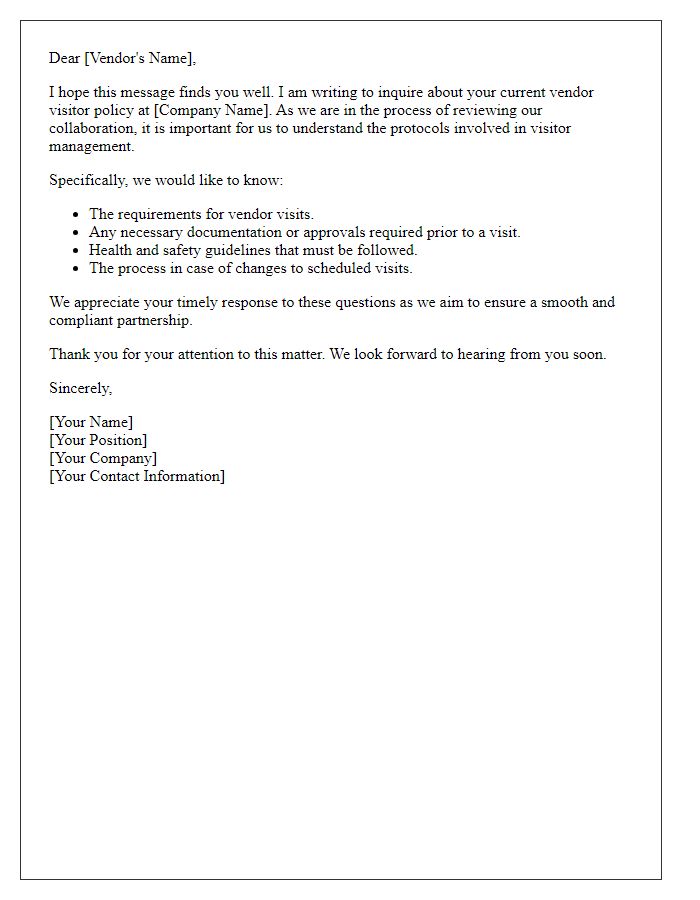
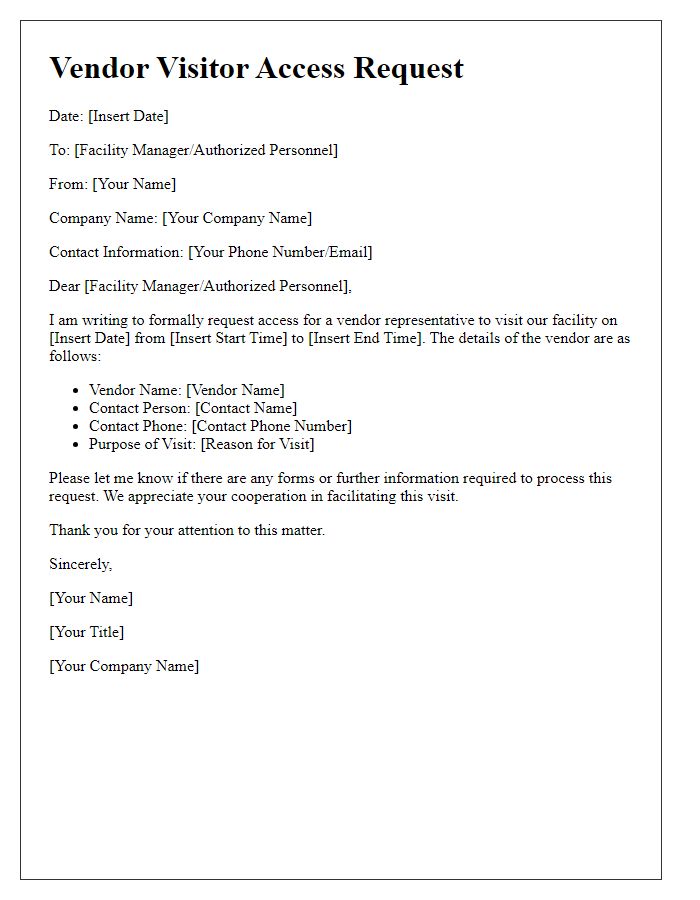
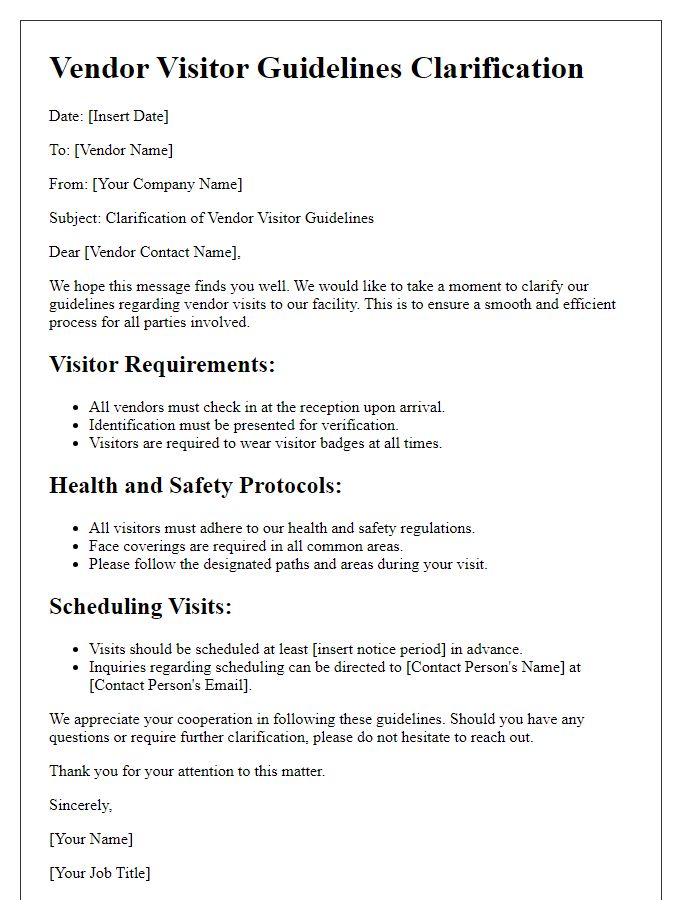
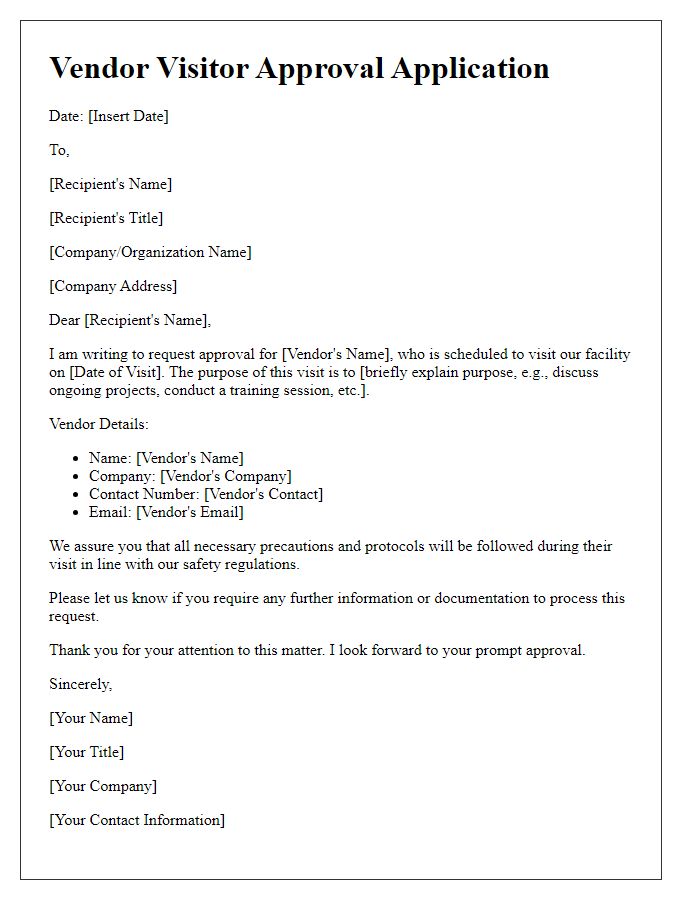
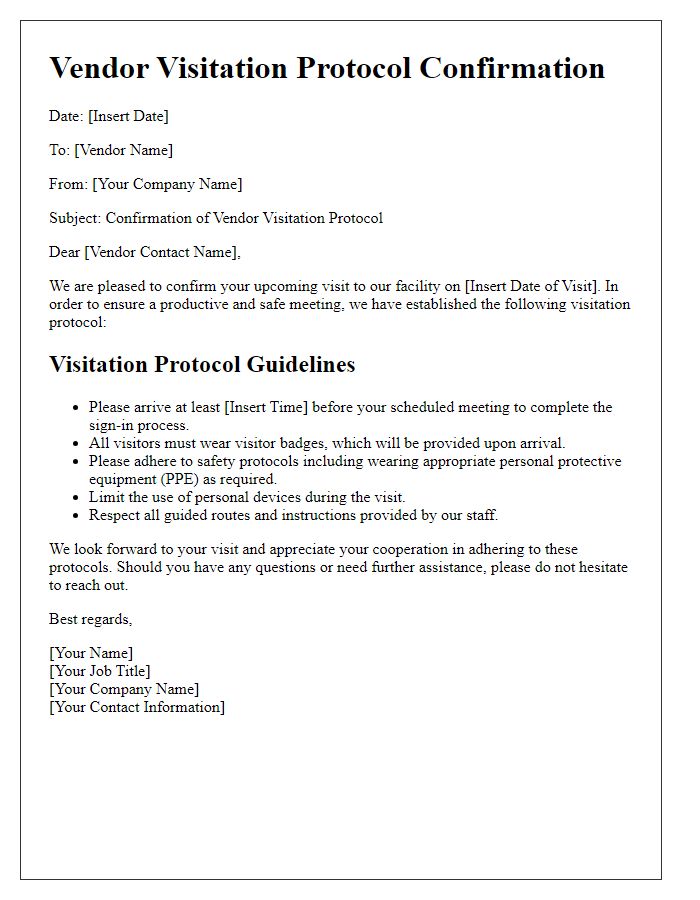
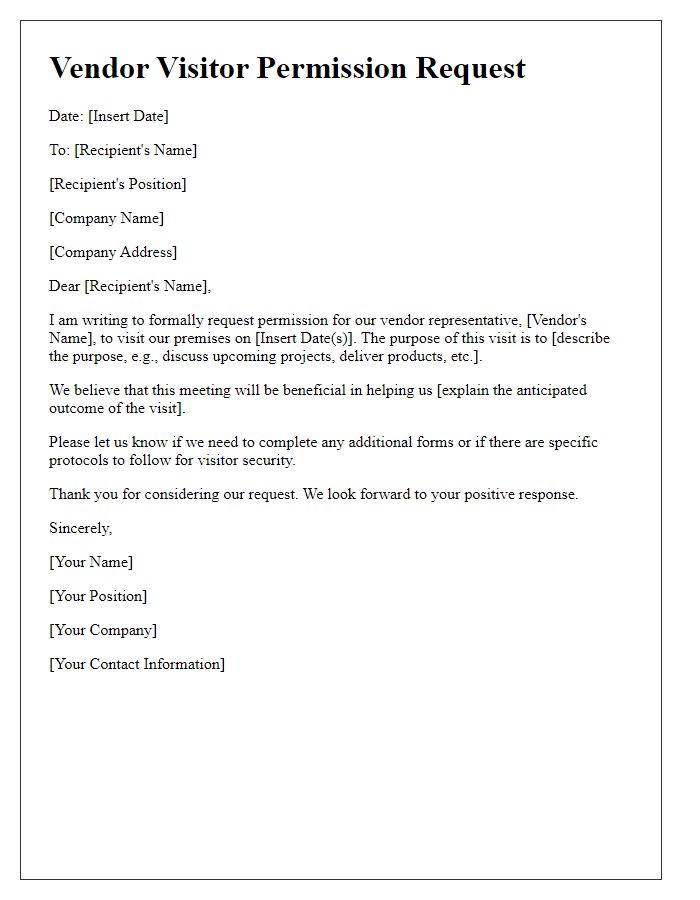
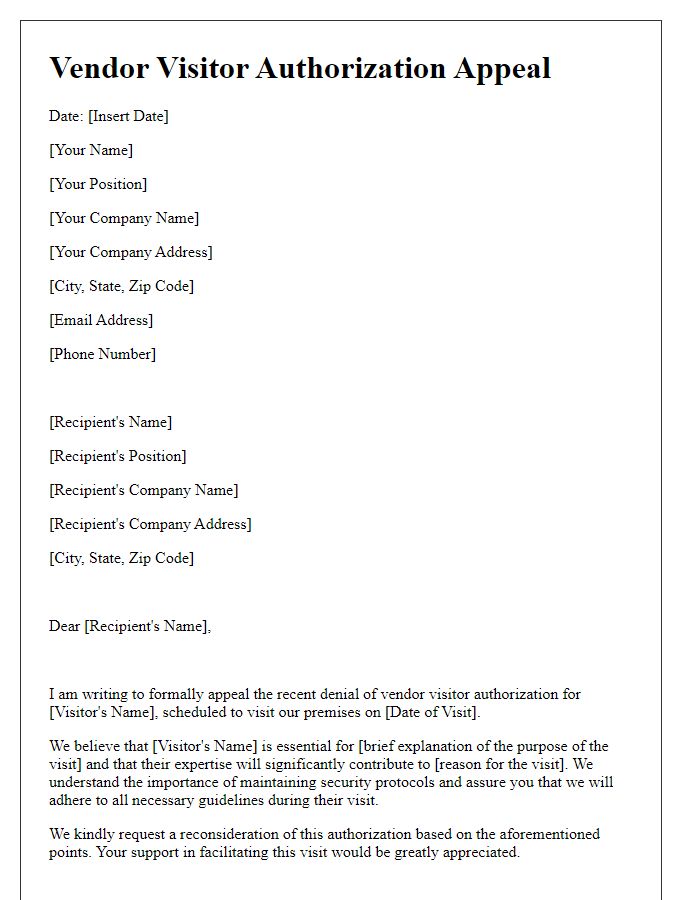
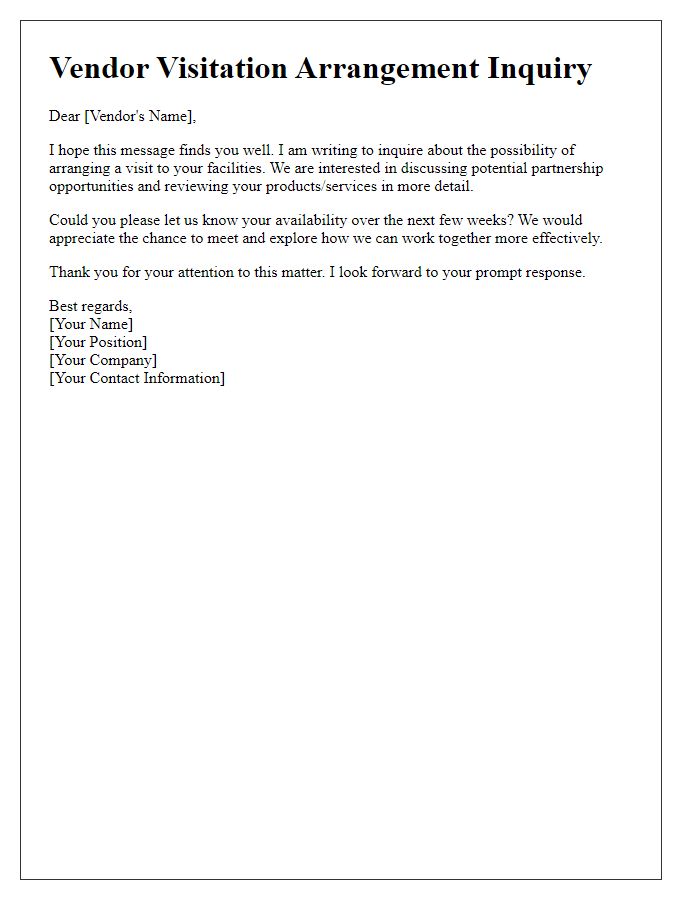
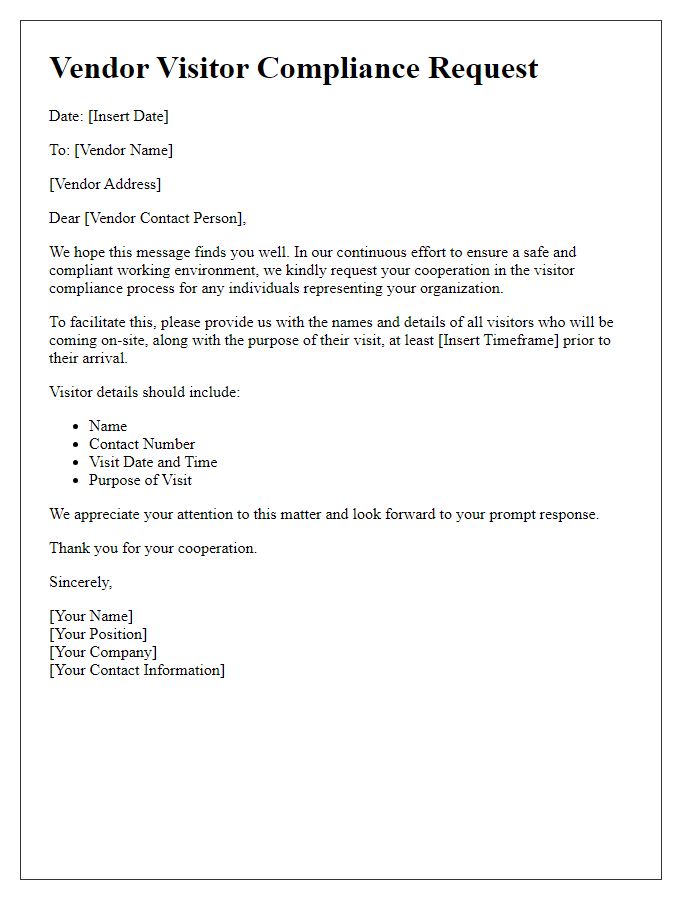
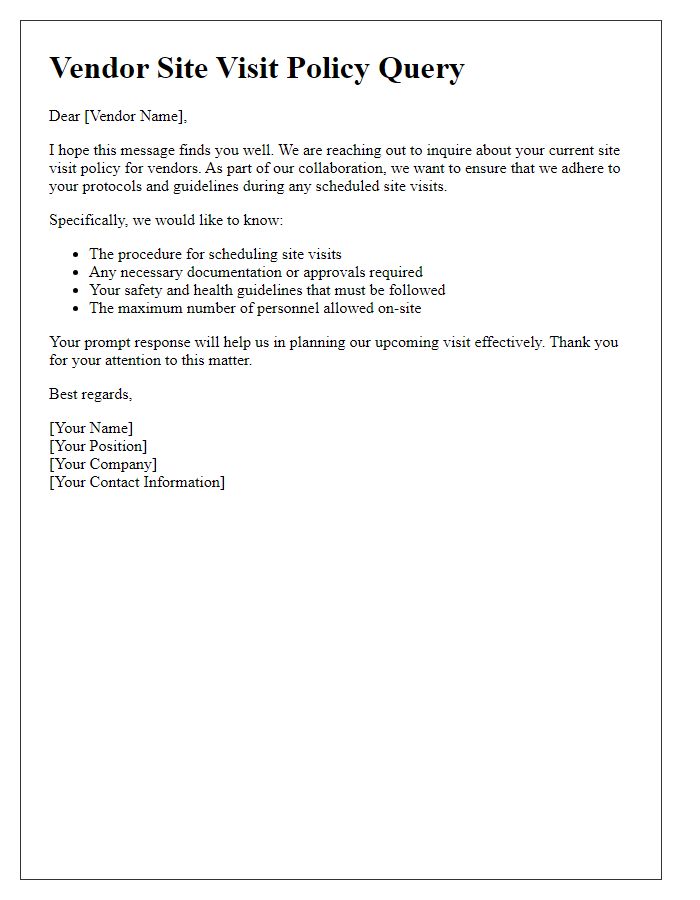


Comments